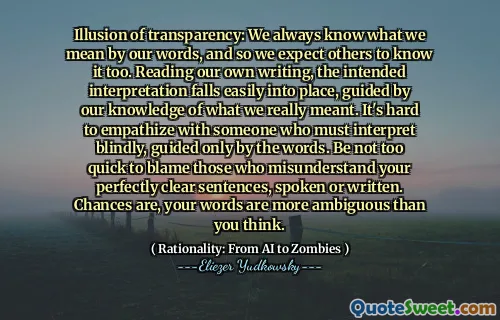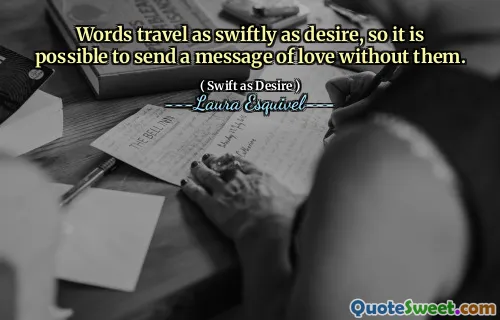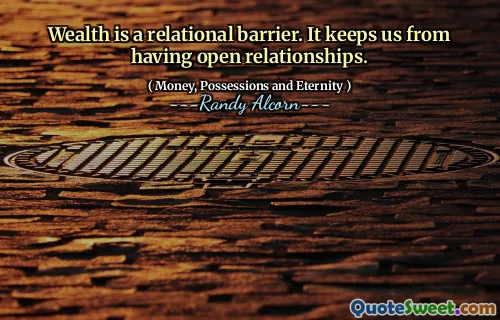
Illusion of transparency: We always know what we mean by our words, and so we expect others to know it too. Reading our own writing, the intended interpretation falls easily into place, guided by our knowledge of what we really meant. It's hard to empathize with someone who must interpret blindly, guided only by the words. Be not too quick to blame those who misunderstand your perfectly clear sentences, spoken or written. Chances are, your words are more ambiguous than you think.
This quote highlights a common cognitive bias that often affects communication: the illusion of transparency. We tend to overestimate how clearly our intentions and meanings are conveyed to others. This assumption can lead to frustration when our audience misinterprets what we say or write because we fail to recognize the inherent ambiguity in language. What feels crystal clear to the speaker or writer is not necessarily so to the listener or reader, who lacks the internal context and emotional background that shaped the message. I find this insight deeply humbling because it reminds me that effective communication requires not only clarity of expression but also empathy and patience. We should strive to bridge the gap between our internal understanding and the external reception by considering how diverse perspectives might color the interpretation of our words. It warns against hastily attributing misunderstandings to the other person's lack of comprehension or attention. Instead, it encourages us to reflect on our own responsibility in crafting messages that are as unambiguous as possible while recognizing some degree of inevitable opacity. In a world where communication is increasingly digital and often stripped of tonal and contextual cues, the illusion of transparency becomes even more dangerous, risking costly misinterpretations and conflicts. By acknowledging this illusion, we move towards better interpersonal understanding, conflict resolution, and collaboration.




